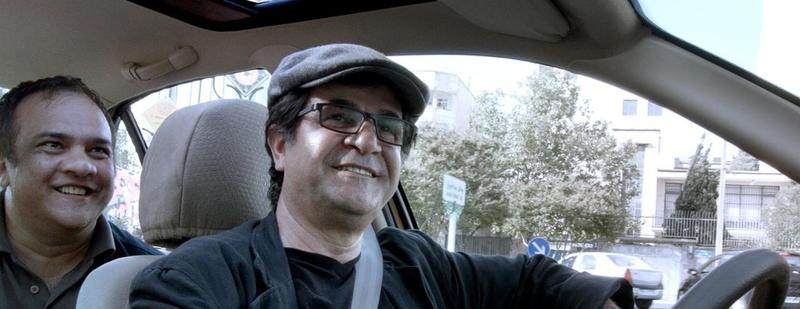
Taxi Tehran
In Taxi, Iranian director Jafar Panahi literally gets behind the wheel of a cab and picks up fares. Events seem to unfold sporadically at first but eventually themes begin to emerge, and it becomes clear that he’s put a lot more work into this film than initially meets the eye. It’s worth noting that he’s not currently allowed to travel out of the country or make films, so this was shot on the down-low and released illegally.
This continues along the Iranian trend of making smart, innovative, thought-provoking yet entertaining films. Whether it’s Panahi’s work or someone else’s, something about these films lingers in the mind long after the credits roll.
There’s a playful sense of humour throughout. Panahi is not a good taxi driver. He’s easily distracted, doesn’t know where anything is so keeps asking for directions and he has to run errands of his own with passengers on board. At one point he puts two old ladies into another cab so he can go pick up his niece.
Some of the characters are funny to the point where Taxi begins to feel a bit like sketch comedy. The two old ladies I mentioned before are carrying fish in a bowl, and Panahi must take care when driving so they don’t spill it. In another instance, a pirate DVD seller recognises the director, and tries to use him as a promotional tool.
Things go from light to dark very quickly though. The DVD man and the driver are chatting when a screaming woman bangs on the window. They open the door to reveal her husband who is lifted onto the back seat. He’s covered in blood, dying, and asks the two in the front to record him reading his will. They drive him to a hospital. Panahi swings the mood back though, when later he gets a call from the woman, who confirms her husband will be ok, but insists on getting a copy of the video ‘just in case’.
Taxi is an act of defiance, but in some ways it’s also a love letter to Iran. People in the film often discuss the law, justice and what is right or wrong. Under current rules, such discussion is not allowed in Iranian cinema; it’s seen as ‘sordid realism’. Panahi hasn’t set out to break the rules though, he’s just pointing out how constrictive they are.
Don’t be put off by the foreign language and artsy credentials - Taxi is a fun and eye-opening look into a part of the world we only learn about through the TV news.